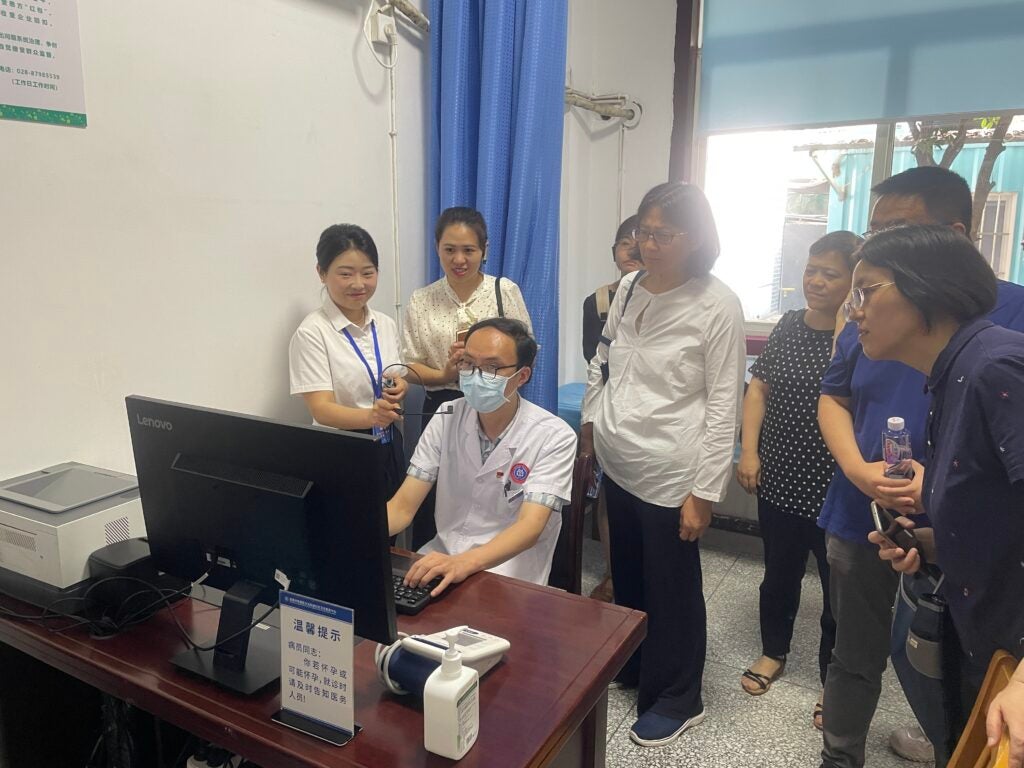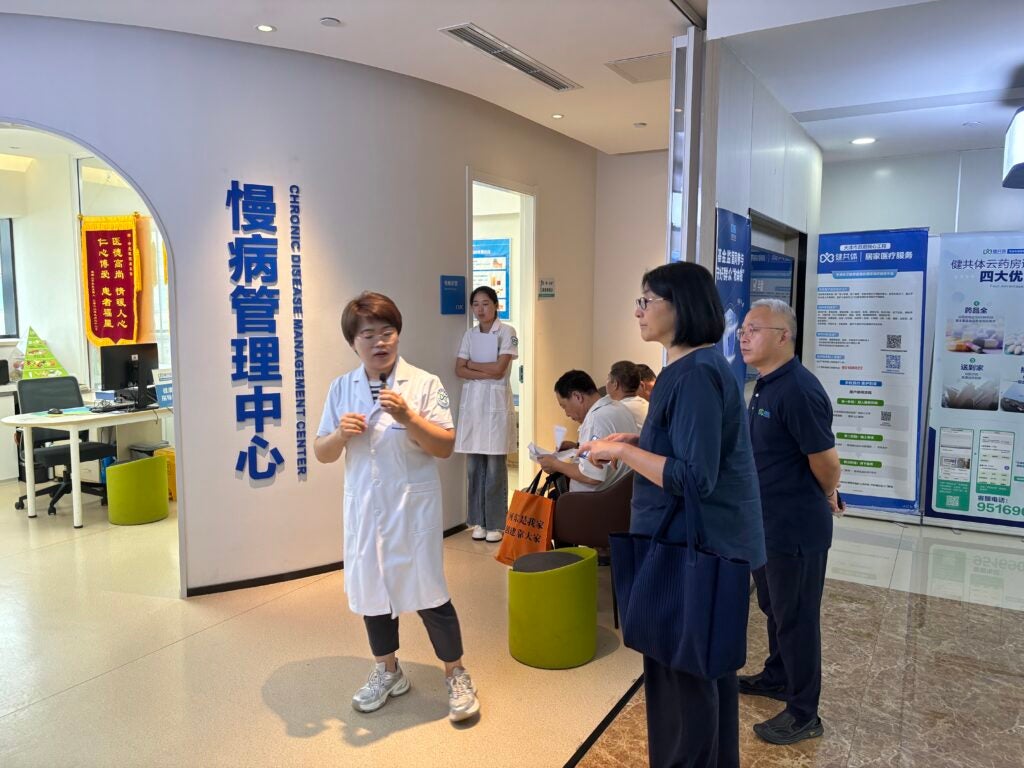Harvard China Health Partnership
The Harvard China Health Partnership (HCHP) is a school-wide initiative dedicated to advancing scholarship on China’s health system, evaluating and designing health policy interventions, and improving health care in China.
665 Huntington Ave
Building 1, Room 1210
Boston, MA 02115

Exploring Digital Technology Enabled Primary Care across China
Throughout July 2024, the Harvard China Health Partnership (HCHP) completed a series of visits to primary healthcare facilities in Yuhang, Zhejiang; Chengdu, Sichuan; and Tianjin. These visits aimed to understand how digital technology enhances primary care effectiveness, as part of a project funded by the Bill & Melinda Gates Foundation.
The first stop of the project team was Yuhang. Here, the team saw the integration of technology and performance-based incentive system to motivate primary providers in NCD management. The site also creatively used drones to deliver bio samples collected from primary facilities to higher tier hospitals for testing, and electronically send the results back to the primary facility.

In Chengdu, the project team visited Anjing Street Community Health Clinic, Hongguang Community Health Clinic, and Huayuan Street Center Health Clinic. All three community clinics were well-equipped with standardized medical record, prescription, and NCD management systems. With these essential digital systems in place, it is vital that technologies are translated into management tools that truly motivate behavioral change in primary providers and produce improved population health outcomes.

One highlight of the visit was Tianjin’s Health Alliance (健共体). Contracted by Tianjin’s Healthcare Security Administration, the third party health management company WeDoctor organized hospitals and providers into a population health focused integrated delivery system. Trained health managers (健康管理师) from WeDoctor are assigned to primary facilities for population level NCD management, empowered by standardized electronic systems. On the payment front, the system initiated a pilot to receive a capitated budget from Tianjin’s basic health insurance fund for each enrolled resident. With the proper combination of technology and management, the system achieved and retained substantial savings and improved population outcomes.

These field visits to primary facilities provided valuable insights on how digital technologies are empowering primary health capacities in China. Ultimately, the team aims to use the insights gained from these visits to better understand the mechanisms behind provider behavior and knowledge, and with these understandings, effect meaningful changes to primary care systems in other countries.